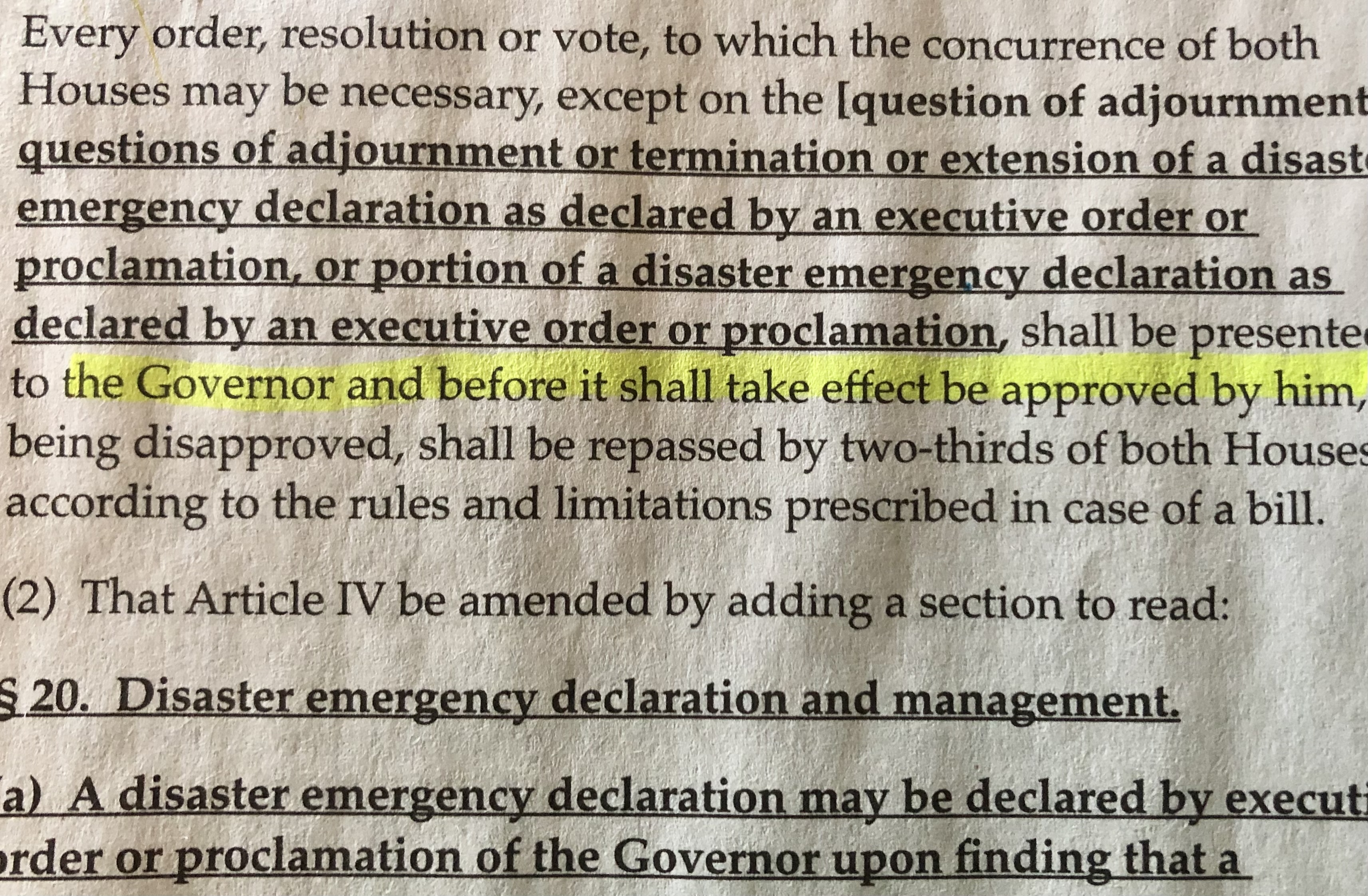Want to change the Pa. Constitution?
On May 18th, Pennsylvania voters will find three questions on their primary ballot asking for amendments to the state constitution.

The questions follow a joint resolution of the General Assembly, which developed the language. (There is a fourth, non-Constitutional question regarding municipal fire and medical services eligibility for loans.)
The first Constitutional amendment would prohibit restricting or denying an individual’s equal rights in Pennsylvania because of race or ethnicity.
The other two deal with restricting the governor's powers to declare and extend a state of emergency. They transfer some power from the governor to the legislature.
Hmmm. Governor elected by all the people versus reps elected by parts of Pennsylvania that seem to be in the Stone Age. I wonder if this is somehow racist, because everything else is. This will require more study on my part.
One thing I can say about the General Assembly is shown above. In its joint resolution, the language uses the male personal pronoun “him,” when referencing the governor, as if it could not even imagine a female governor. More than 40 women have been governors of U.S. states and territories, so the idea of female leadership is not exactly radical.
The amendment to prohibit denying or restricting rights on the basis of race and ethnicity seems to be a no-brainer. Aren’t those broadly, but not specifically, guaranteed by the U.S. Constitution?
It reminds me of the argument some make against tightening voting requirements — that it is a solution in search of a problem. In these cases, I look at intent. If it is to protect the process, or the individual, I favor it.
The Pennsylvania Constitution was adopted in 1790, two years after the U.S. Constitution. While it mimics it, there are some differences.
One is the right to bear arms.
“The right of the citizens to bear arms in defense of themselves and the State shall not be questioned,” says Article I, Section 21.
That is more plain and powerful than the U.S. Constitution’s Second Amendment: “A well regulated Militia, being necessary to the security of a free State, the right of the people to keep and bear Arms, shall not be infringed."
The term “militia” has been debated forever. The Quaker State took just the last part of 2A, as some people call it, dropping the “militia” mishegas.
As to the question about allowing municipal fire and medical units to secure loans, why not? — unless there’s a trap in there I am unaware of.
Anything’s possible.



